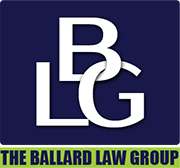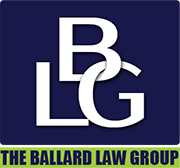When faced with a difficult financial situation, perhaps due to a lost job or unexpected medical expenses, many people turn to credit cards. Credit cards often feel like a lifeline when you don’t have enough cash to cover your expenses. However, credit cards can quickly become a huge financial problem, especially when you can’t make your payments. Credit cards often have huge interest rates and so when you can pay off your card, your debt only continues to grow. If you don’t make your payments, you could be faced with a collection claim and have creditors pestering you to get paid.
When credit card debt becomes overwhelming, one option to consider is filing for a Georgia bankruptcy. A Georgia bankruptcy can help discharge, or wipe out, your credit card debt and give you a fresh financial start.
Credit Card Debt and Chapter 7 Bankruptcy
In a Chapter 7 Bankruptcy, your property of value (that is not exempt) is taken by your bankruptcy trustee and sold to repay your creditors. Unsecured debt, which means debt that isn’t attached to a specific asset like a car, house, or boat, is generally eliminated by the bankruptcy. Most credit card debt is considered unsecured debt and is totally wiped out by your bankruptcy.
However, there is an exception to the total discharge of your credit card debt in a Chapter 7 bankruptcy. If you commit fraud, that credit card debt will not be discharged. This usually happens when people spend lots of money on their credit cards to buy luxury goods or services (fancy clothes, massages, vacations, etc.) right before filing for bankruptcy. The Court will not let this debt be discharged because it considers it fraudulent, so you need to be careful on how you use your credit card right before filing for bankruptcy.
Credit Card Debt and Chapter 13 Bankruptcy
When you file a Chapter 13 bankruptcy, you create a debt repayment plan. The goal of this plan is to pay back all of your creditors, either completely or partially, over a three to five year period. In this plan, you typically only have to pay back a small portion of unsecured debt like your credit card debt. When you complete your repayment plan, any credit card debt you have left over will be discharged.
Get Help from a Skilled Bankruptcy Attorney
When your debts have piled up and your credit cards are reaching their limit, you may wonder if you will ever be able to get to a place where you don’t have to rely on your credit cards to make it financially. Turning to bankruptcy can be the best option to help you get your finances back under control so you can move forward and avoid this type of financial trouble in the future.
A bankruptcy can help to eliminate the weight of burdensome credit card debt so you can have a fresh financial start. By talking to an experienced bankruptcy Attorney at The Ballard Law Group, you can see how bankruptcy can help your personal financial situation and get answers to what type of bankruptcy, chapter 7 or chapter 13 is best for handling your credit card and other debts. We offer free bankruptcy consultations to go over your situation—contact us today at (404) 800-9939 to schedule yours.


